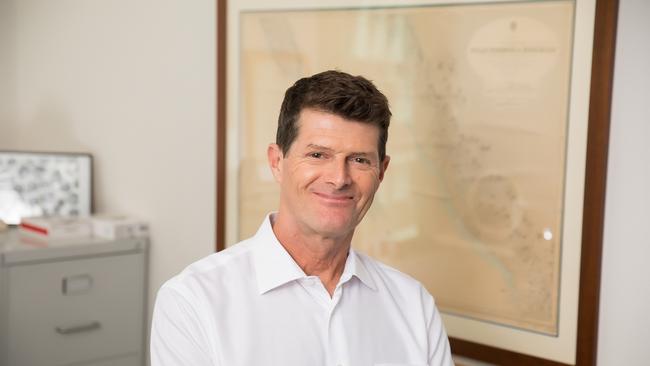Garvan Institute researchers find antibodies to stop COVID-19
An antibody injection for COVID-19 — developed by Australian researchers — could help keep people out of intensive care and protect health workers.
Coronavirus
Don't miss out on the headlines from Coronavirus. Followed categories will be added to My News.
An antibody injection for COVID-19 is being developed by Australia’s Garvan Institute and it could help keep people out of intensive care and protect health workers.
Work on the treatment is advanced and human clinical trials are due to begin later this year.
Unlike the antibodies from the blood plasma of patients who have recovered from COVID-19, these monoclonal antibodies are genetically engineered in a laboratory and will be fine tuned to bind tightly to COVID-19’s spike proteins and stop the virus in its tracks.
The institute is also preparing to analyse the differences in the genomes of people infected with COVID-19 to discover why some get severe disease and others are asymptomatic.
The genome of an organism is the whole of its hereditary information encoded in its DNA (or, for some viruses, RNA). This includes genes and non-coding sequences of the DNA.
In the next few months the institute will be asking all Australians who had the virus to provide a saliva swab so they can test genetic differences that may explain why people have different immune responses.
Before the study goes ahead, the institute must gain ethics approval for the study.
Director of the Garvan Institute of Medical Research Professor Chris Goodnow said researchers had gathered a whole portfolio of antibodies from the blood of people who had recovered from the SARS outbreak in 2003 and re-engineered them to find those capable of fighting COVID-19.
These antibodies bind strongly to the ‘Achilles’ heel’ of SARS-CoV-2 – the spike protein which the virus needs to infect human cells.
Over the next month, the team will work to find those antibodies that have the greatest ability to bind to the virus and neutralise it more effectively than natural antibodies, such as those generated by a potential vaccine.

Researchers at the Kirby Institute will then test the safety and efficacy of the antibodies in clinical trials later this year.
The monoclonal antibodies are very expensive to make so would not be a solution for whole populations, he said.
Instead they could be given to health workers who might be exposed to patients with COVID-19. They would need a monthly injection to fight off the virus.
The antibodies would also be given to people infected with serious cases of COVID-19 in the hope the treatment would keep them out of intensive care, he said.
“It would certainly be less than the cost of a couple of days in ICU,” Dr Goodnow said.
“If we can reduce the percentage of individuals requiring ICU by more than half, we can afford to relax social distancing measures much more than will otherwise be possible, which is crucial for our economy and society.”
Garvan researchers are also analysing the differences in the genes controlling the immune response between patients with mild and severe COVID-19 symptoms.
They hope that by revealing what underpins severe COVID-19 symptoms they can identify which components of the immune system are responding too little or too much.
This could help guide treatment targets to stop people with COVID-19 infections from progressing to severe disease requiring intensive care.
